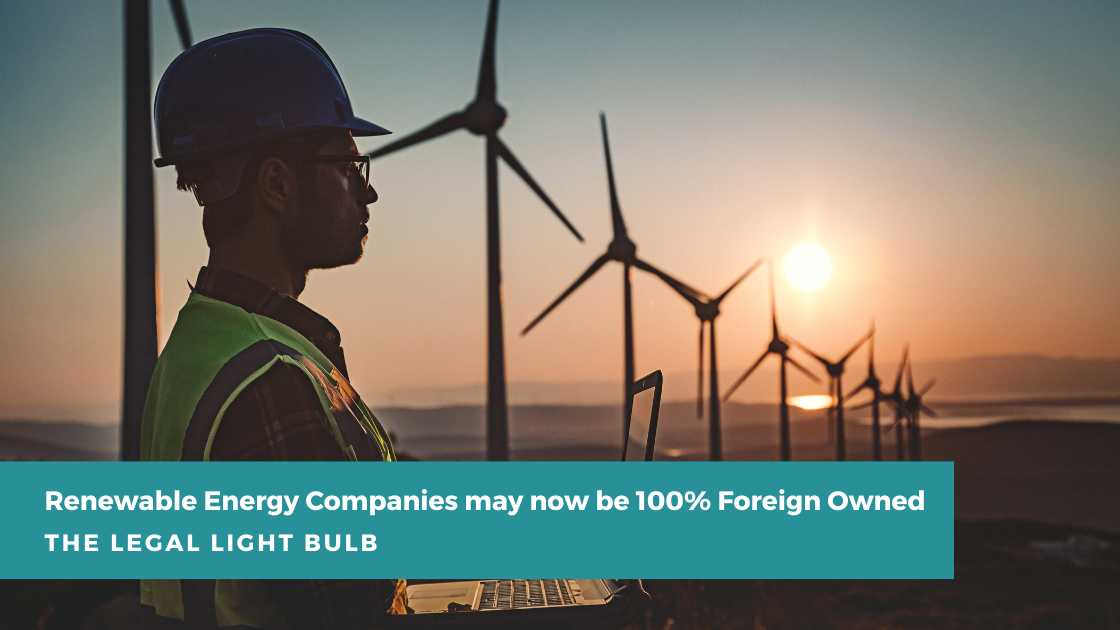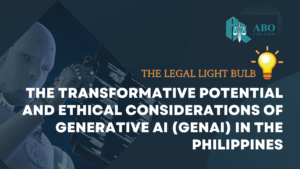The long-standing restriction on the exploration, development, and utilization of inexhaustible renewable energy sources is expected to be relaxed according to the Department of Justice (DOJ). Under Section 2, Article XII of the Philippine Constitution, the exploration, development, and utilization of natural resources shall be under the complete control and supervision of the State. The State may directly undertake such activities, or it may enter into co-production, joint venture, or production-sharing agreements with Filipino citizens, or corporations or associations at least sixty per centum of whose capital is owned by such citizens.
An October 2, 2022 media release by the Department of Energy (DOE) revealed that the DOJ, through DOJ Opinion No. 21 series of 2022 (“the DOJ Opinion”),[1] opined that the Constitutional foreign ownership restriction to natural resources “only covers the things susceptible to appropriation, thus excluding the sun, wind and the ocean.” Simply put, the restriction does not apply to inexhaustible renewable energy sources such as solar, wind, hydro, and ocean or tidal energy. Since these energy sources (the sun, wind, and the ocean) are not subject to appropriation, they could be used, exploited, or harnessed by anyone.
Further, according to the DOJ Opinion, the compelling reason behind the imposition of a limit to foreign participation in the exploitation, development, and utilization of natural resources, i.e., the fear of depletion of the country’s exhaustible resources by foreigners, finds no application to inexhaustible renewable energy sources. By their very nature, such energy sources are incapable, under normal circumstances, of exhaustion.
Another point that supports the view is that at the time the 1987 Philippine Constitution was crafted, the development of said energy sources are still in its embryonic stage. They were not yet developed, used, or exploited. Hence, the change of circumstances with the advent of new technology and processes magnifies the inapplicability of the limitations under the Constitution with respect to such energy sources.
The DOE welcomed the legal opinion as it solved the many bids of foreign companies for the government to relax the ownership restriction on Renewable energy (RE) projects. Additionally, DOJ points out that at the time the Constitution was being crafted, RE sources are yet to be developed, used, or exploited, unlike today where technology is at its peak.
The DOJ, however, reiterated that the “appropriation of waters, direct from the source, for power generation” should continue observing the 60-40 equity rule.
IRR Amendments
Following the legal opinion, the DOJ said that an amendment to the implementing rules and regulations of Republic Act No. 9513, or the Renewable Energy Act of 2008, should be made before entertaining foreign investors’ projects.
In fact, Sec. 19 (A) of Rule 6 of the IRR of the RE Law states that All forces of potential energy and other natural resources are owned by the State and shall not be alienated. These include potential energy sources such as kinetic energy from water, marine current, and wind; thermal energy from solar, ocean, geothermal, and biomass. This provision is in contrast with DOJ Opinion No. 21 series of 2022 where the DOJ opined that “all forces of potential energy” outlined in the Constitution should be interpreted to exclude “kinetic energy.”
A Welcoming development
Energy Secretary Raphael P.M. Lotilla said that they are preparing the necessary adjustments to the IRR to start focusing on the investments the renewable energy industry is and can bring to our economy. He stated that “private sector investments are central in achieving our renewable energy targets and vision for the Filipino people and this is a welcome development for our foreign investors to invest in renewable energy production here in our country. This will certainly contribute to our target share of renewable energy in the power generation mix of 35% by 2030 and 50% by 2040.”
Written by: April Ann Napone
[1] DOJ Opinion No. 21 Series of 2022





